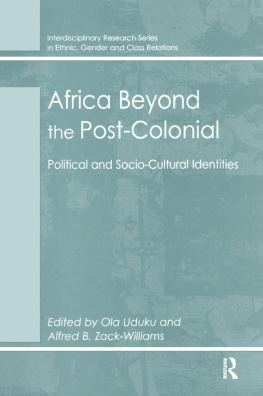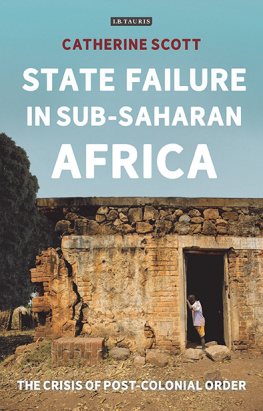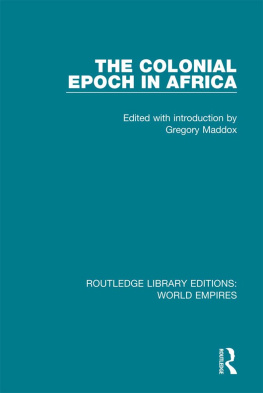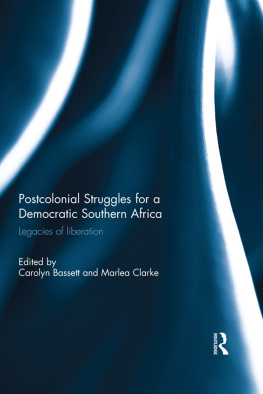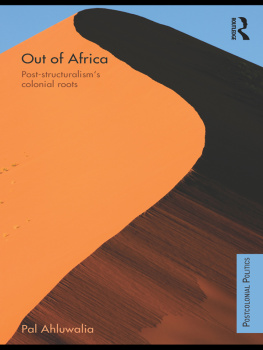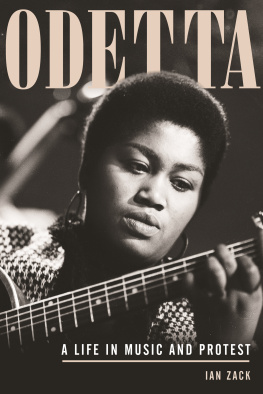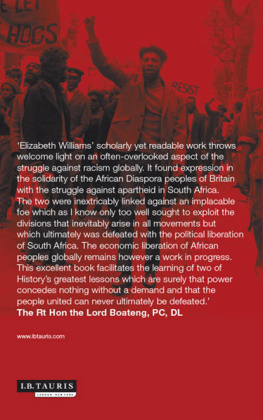Alfred B. Zack-Williams - Africa Beyond the Post-Colonial
Here you can read online Alfred B. Zack-Williams - Africa Beyond the Post-Colonial full text of the book (entire story) in english for free. Download pdf and epub, get meaning, cover and reviews about this ebook. year: 2017, publisher: Taylor & Francis, genre: Politics. Description of the work, (preface) as well as reviews are available. Best literature library LitArk.com created for fans of good reading and offers a wide selection of genres:
Romance novel
Science fiction
Adventure
Detective
Science
History
Home and family
Prose
Art
Politics
Computer
Non-fiction
Religion
Business
Children
Humor
Choose a favorite category and find really read worthwhile books. Enjoy immersion in the world of imagination, feel the emotions of the characters or learn something new for yourself, make an fascinating discovery.
- Book:Africa Beyond the Post-Colonial
- Author:
- Publisher:Taylor & Francis
- Genre:
- Year:2017
- Rating:5 / 5
- Favourites:Add to favourites
- Your mark:
- 100
- 1
- 2
- 3
- 4
- 5
Africa Beyond the Post-Colonial: summary, description and annotation
We offer to read an annotation, description, summary or preface (depends on what the author of the book "Africa Beyond the Post-Colonial" wrote himself). If you haven't found the necessary information about the book — write in the comments, we will try to find it.
Africa Beyond the Post-Colonial — read online for free the complete book (whole text) full work
Below is the text of the book, divided by pages. System saving the place of the last page read, allows you to conveniently read the book "Africa Beyond the Post-Colonial" online for free, without having to search again every time where you left off. Put a bookmark, and you can go to the page where you finished reading at any time.
Font size:
Interval:
Bookmark:

Cecil Blake | Professor of Mass Communications, University of Nebraska, USA, formerly Minister of Information and Broadcasting, Republic of Sierra Leone. |
Ferdinand Dennis | Writer and Broadcaster, London. |
Ali Mazrui | Albert Schweitzer Professor in African Studies and the Humanities, Binghamton University, New York. |
Kole Omotoso | Professor, Department of Drama and Performing Theatre Arts, University of Stellansbosch, South Africa. |
E. Ike Udogu | Professor of African and International Relations, Department of Political Science and Criminal Justice, Appalachian State University, Boone, North Carolina, USA. |
Ola Uduku | Lecturer in Architecture, Department of Architecture and Building Science, University of Strathclyde, Glasgow, Scotland. |
Alfred B. Zack-Williams | Professor of Sociology, Department of Education and Social Science, University of Central Lancashire, Preston, England. |
Font size:
Interval:
Bookmark:
Similar books «Africa Beyond the Post-Colonial»
Look at similar books to Africa Beyond the Post-Colonial. We have selected literature similar in name and meaning in the hope of providing readers with more options to find new, interesting, not yet read works.
Discussion, reviews of the book Africa Beyond the Post-Colonial and just readers' own opinions. Leave your comments, write what you think about the work, its meaning or the main characters. Specify what exactly you liked and what you didn't like, and why you think so.

